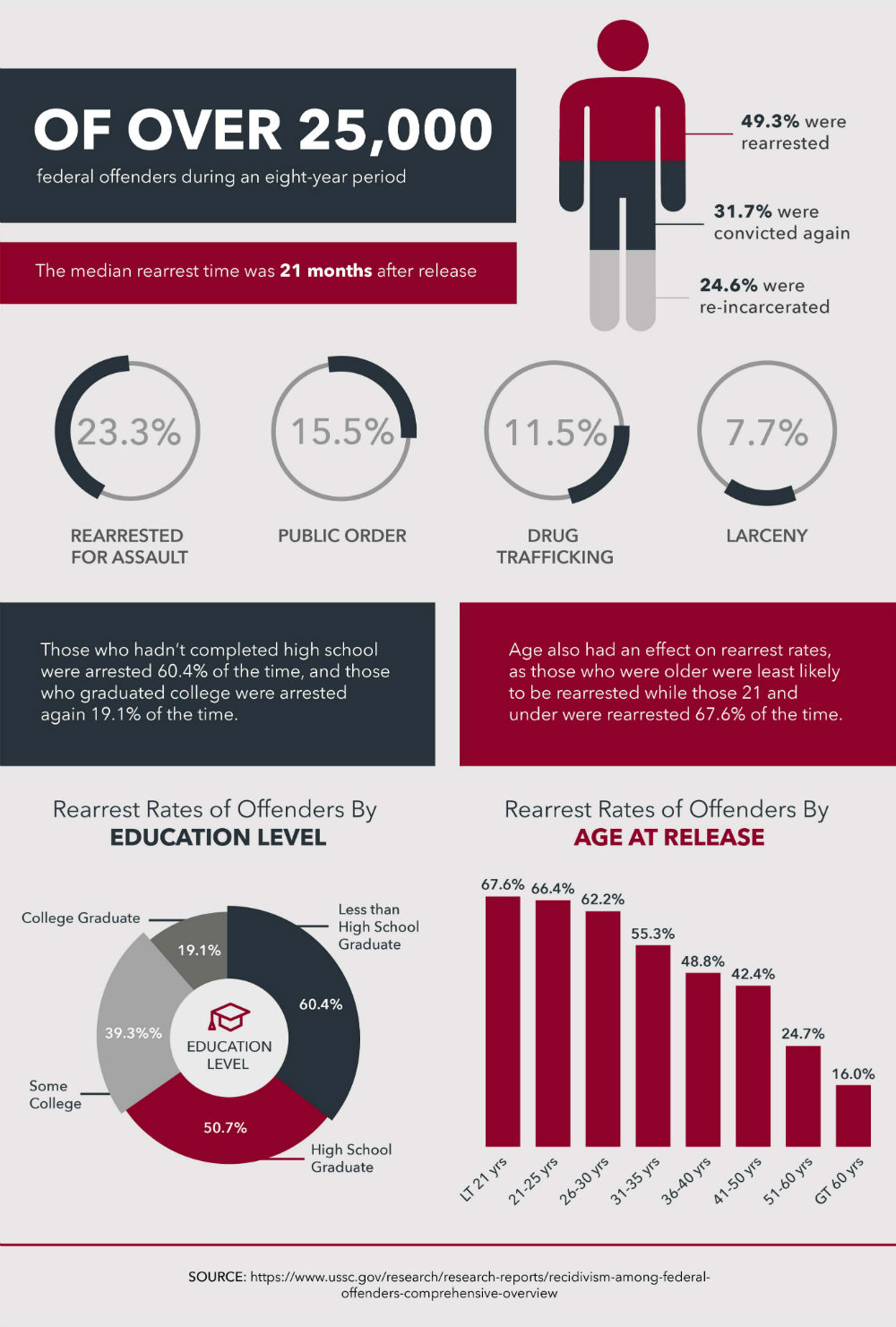The Challenges Ex-Convicts Face and What Can Be Done to Reduce Recidivism
Lack of financial stability and social support system
Getting out of prison means having to start from scratch, but with no money or resources. Your job, income, credit, and savings are gone. Any debts accumulated interest and damaged your credit rating severely. You are not given any funds to get reestablished. Without money, it is extremely difficult to find housing and employment. Landlords and employers are typically hesitant to take a chance on an ex-convict with no means to support themselves. This lack of stable financial position and social support traps many into returning to criminal activities out of desperation.

Diminished prospects for career growth and upward mobility
Even if you manage to find a low-wage job with few responsibilities, there are limited opportunities for skills development and career advancement. Your criminal record places permanent limits on your dreams and potential. The kinds of jobs available will barely cover basic needs like food and shelter. Without hope for a better quality of life through upward career mobility, it is easy to lose motivation and turn back to illegal activities that seem to offer faster money and relief from struggling paycheck to paycheck.
Strained personal relationships and social isolation
Years spent behind bars take a toll on family bonds and friendships. Connections fade due to lack of regular contact and shared experiences of moving forward in life. You return to find your closest support system disrupted or broken. The stigma of being an ex-convict distances you from forging new relationships in the community as well. Living a life of social isolation breeds hopelessness and resentment, pushing some back to the company of other criminals. Establishing strong social support networks is crucial for successful reintegration but very challenging without resources and opportunities.
Permanent limits to role and identity in society
Your criminal record is like a scarlet letter that follows you everywhere. It implies that you are untrustworthy and dangerous. You are seen more as an ex-con than as a complex human being. Any mistake feeds into the perception that people with a criminal past cannot change. This affects how you see yourself as well as how others interact with you. Without a sense of valued social role and identity, it is difficult to stay motivated away from destructive behaviors and old destructive patterns.
Return to crime as a rational choice
With limited options, returning to illegal activities starts looking like a rational choice. Why struggle to barely survive when you can potentially make more money through underground economy or scams? If caught, at least you will have basic needs met in prison. Some never intended to go straight and see a criminal lifestyle as their self-identity. For them as well as those left with few promising alternatives, continuing crime is the path of least resistance. Unless positive incentives for desisting from crime are provided, rational thinking may in fact point back in the wrong direction.
Community support in finding housing and jobs
One way to break this cycle is by non-profits or government programs connecting ex-convicts to transitional housing and helping them secure stable employment. Having an address makes job applications less daunting. Getting a job, even entry-level, provides income, structure, and a reference for future opportunities. case managers can also help access vocational training, substance abuse treatment, mental health services, and other assistance. With this support, ex-convicts gain a foothold for sustainable reentry.
Ban the box and fair chance hiring policies
Another big step is convincing more employers to adopt “ban the box” and “fair chance hiring” policies. This means removing the conviction history check-box from job applications and delaying background checks till later in the hiring process. It gives ex-convicts a fair shot at interviews based on qualifications rather than being automatically screened out. Research shows these policies do not endanger workplace safety. Instead, they provide valuable second chances for qualified job-seekers trying to turn their lives around.
Mentorship for social and emotional support
Pairing ex-convicts with mentors from the community, especially those further along in their own reentry process, can make a huge difference. Mentors provide encouragement, wisdom on navigating challenges, and meaningful social interaction to reduce isolation. They hold ex-convicts accountable while believing in their potential for positive change. Developing these mentoring relationships fosters hope, resilience, and pro-social coping skills crucial to staying crime-free long-term.
Focus on skills training and continued education
Rather than expecting ex-convicts to immediately find living-wage jobs, greater investment should be made available for career and technical education, GED courses, industry certifications, and apprenticeships. This provides pathways to in-demand occupations with opportunities to upskill over time. Partnerships can be formed with companies seeking candidates for training programs. Prioritizing skills development and lifelong learning gives people the tools and motivation to progress toward self-sufficiency through legal means.
In conclusion, reducing recidivism demands recognizing the complex challenges ex-convicts face on release and actively working to remove barriers through comprehensive community support services. By prioritizing positive incentives like transitional jobs, education, mentorship and second chances, we empower those who have served their time to successfully reintegrate as productive members of society rather than condemning them to a repetitive cycle through lack of real options. A focus on skills, relationships and sustainable solutions gives hope that people can change for the better when given a fair opportunity.
